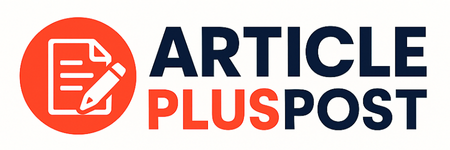Key Ethical Challenges in Using Generative AI Tools
Category: Education | Author: revathii | Published: September 25, 2025
Generative AI has emerged as one of the most powerful innovations in recent years, transforming how content, design, and automation are created. From text generation to image synthesis, the applications of this technology are wide-ranging. However, along with its immense benefits, generative AI also raises several ethical concerns that must be addressed carefully. Learners and professionals looking to master such technologies often seek proper guidance from a trusted Generative AI Course in Chennai, where both the technical and ethical aspects of AI are taught with clarity.
Understanding Generative AI and Its Potential
Generative AI refers to artificial intelligence systems that can produce new data or content resembling human-created work. These tools are now widely used in businesses for marketing campaigns, chatbots, automated design, code generation, and even drug discovery. While their possibilities are endless, questions about fairness, bias, ownership, and responsible use continue to grow.
Ethical Challenge 1: Data Privacy Concerns
One of the primary concerns with generative AI is data privacy. These systems often rely on vast amounts of personal and public data to produce results. If such information is not handled responsibly, it can lead to breaches of privacy. For example, AI trained on sensitive user data may inadvertently generate content that reveals confidential details. Businesses must therefore ensure that training data follows strict privacy laws and industry regulations.
Ethical Challenge 2: Copyright and Intellectual Property Issues
Another critical challenge is related to intellectual property rights. Generative AI can create artwork, music, and written material that closely resembles existing works. This raises the question: who owns the output, and does it violate copyright laws? Since many AI systems are trained using publicly available data, they may unintentionally reproduce protected material. Developers and users must clearly define ownership rights and respect original creators when deploying these tools.
Ethical Challenge 3: Bias in AI Outputs
Bias is a long-standing issue in artificial intelligence, and generative AI is no exception. If the training data contains stereotypes or imbalances, the AI model will reproduce these in its outputs. For instance, a text generator may create biased or discriminatory statements if trained on skewed datasets. Tackling this challenge requires careful dataset selection, regular monitoring, and ethical frameworks during development. Ethical Hacking Course in Chennai offered by FITA Academy emphasises training on unbiased datasets and highlights methods to reduce bias in AI outputs, preparing learners to develop responsible solutions.
Ethical Challenge 4: Spread of Misinformation
Generative AI has the ability to produce realistic content at scale, including images, videos, and news-like articles. While this is beneficial in creative fields, it can also lead to the spread of misinformation. Deepfakes are a strong example of this risk, where AI-generated videos are misused to manipulate public opinion. Ensuring transparency, adding digital watermarks, and implementing detection systems are vital steps in preventing AI from being misused.
Ethical Challenge 5: Accountability and Responsibility
Who is accountable when AI systems produce harmful or misleading results? This is a key ethical dilemma. If an AI-generated medical recommendation causes harm, should responsibility fall on the developer, the business, or the AI itself? Establishing legal and ethical accountability is essential to avoid misuse and ensure that humans remain in control of critical decision-making.
Moving Toward Responsible AI Practices
To overcome these challenges, organizations must establish strict guidelines for AI development and usage. Responsible AI involves transparency, fairness, inclusivity, and security at every stage of the development cycle. Encouraging collaboration between governments, industries, and educators will help build a safer ecosystem for generative AI applications.
Generative AI has the potential to revolutionize industries, but it cannot be used carelessly. Ethical challenges such as bias, privacy risks, intellectual property issues, and misinformation must be addressed proactively. With the right training, professionals can learn how to balance innovation with responsibility. Artificial Intelligence Course in Chennai play a significant role in equipping learners with the skills to harness AI effectively while upholding strong ethical values. By combining technical knowledge with an ethical approach, we can ensure that generative AI benefits society without compromising trust and integrity.
